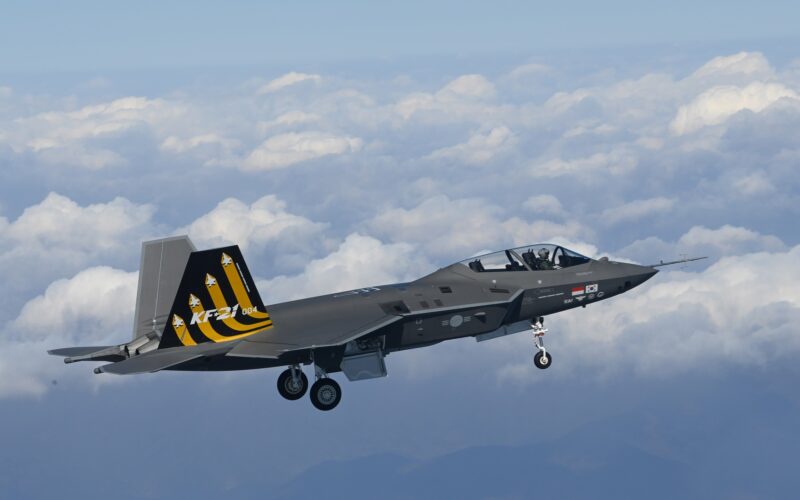Indonesian engineers working at Korea Aerospace Industries (KAI) have been accused of attempting to leak classified data about the Korean supersonic fighter KF-21.
The incident reportedly involved two engineers trying to save sensitive information onto eight USB drives, according to a representative from the South Korean Defense Acquisition Program Administration (DAPA) quoted by Yonhap.
The information allegedly includes details about avionics, such as the indigenously developed Advanced Electronically Scanned Array (AESA) radar equipping the fighter, along with classified data from US and EU suppliers subject to export agreements with South Korea, and thus unavailable to Indonesia.
A joint investigation was opened by the DAPA, the National Intelligence Service (NIS), and the Defense Counterintelligence Command (DCC).
The Indonesian Ministry of Foreign Affairs addressed the issue, emphasizing that it was in contact with the Korean Ministry of Foreign Affairs and relevant organizations to secure information on the situation. However, it contradicted the DAPA report and claimed that only one engineer was involved.
“There was only one engineer who leaked data, and we are investigating the matter,” Lalu Muhamad Iqbal, the spokesperson for the Indonesian Ministry of Foreign Affairs, told local media. “The [Indonesian embassy to South Korea] has spoken with the said engineer, and we have confirmed that the person in question is not being detained.”
What is the KF-21 Boramae fighter jet?
The KF-21 Boramae, a product of the KF-X program, is a collaborative venture between South Korea and Indonesia initiated in 2015.
The KF-21 features a passive stealth design and advanced avionics. With a wingspan of 11.2 meters (36.7 feet), the KF-21 is powered by two F414 engines from GE Aviation, the same engines propelling F/A-18E/F Super Hornets and Saab JAS 39E/F Gripens. It boasts a range of 2,900 kilometers (1,800 miles) and a top speed of 2,200 kilometers per hour (1,367 miles per hour). Thanks to a maximum thrust of 44,000 pounds, the fighter jet carries a substantial maximum takeoff weight of 25,600 kilograms (56,218 pounds) and a maximum weapon load capacity of 7,700 kilograms (17,000 pounds).
Though its design might evoke US-made 5th-generation fighter jets, it differs on several points, notably the absence of an internal weapon bay. Thus, it has been categorized by Korean media as a “4.5 generation fighter.”
The maiden flight of the inaugural aircraft prototype occurred on July 19, 2022, achieving supersonic speed on January 17, 2023. Six KF-21 prototypes have successfully undergone various performance assessments, including night flight and weapon separation tests.
The Republic of Korea Air Force (ROKAF) has set a target to procure 120 KF-21 fighters by 2032, with the intention of replacing aging aircraft such as the F-4E and F-5E in its fleet.
On January 10, 2024, DAPA confirmed that KAI was on track to start production of the KF-21 fighter jet in 2024.
An uneasy cooperation
When South Korea and Indonesia agreed to jointly develop a fighter jet in 2015, the latter pledged to cover 20% of the KF-21 development cost, now estimated to reach 8.1 trillion won (approximately $6.1 billion) by 2026.
However, renegotiations between the countries started in 2017 when Indonesia failed to provide the full amount scheduled for payment that year. Though it was announced that both parties reached a deal in December 2021 regarding future payments, the timeline is reportedly still not finalized.
To this day, Indonesia’s payments reportedly total only 227.2 billion won (approximately $190 million), resulting in an outstanding overdue amount of approximately 1 trillion won (approximately $835 million). According to the Indonesian Ministry of Defense, a budget of 106.5 billion won (approximately $80 million) has been earmarked for payments to proceed in 2024.
In early January 2024, it was revealed that the Indonesian government postponed a plan to procure 12 Dassault Mirage 2000-5 fighter jets from Qatar due to fiscal limitations. The fighters were meant as an interim measure while awaiting the delivery of 42 Rafale jets ordered directly from Dassault Aviation.

